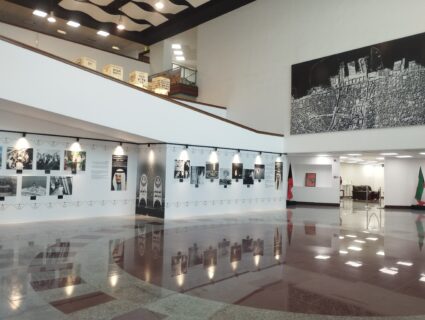Autocratization, Emotions and Identity
In May of this year, Antonia Thies, a doctoral researcher within the DFG-funded graduate program The Sentimental in Literature, Culture, and Politics, embarked on her third research trip to the Gulf region—this time to Kuwait. Her work is embedded in the research activities of the Chair of Politics and Society of the Middle East, which is particularily committed to context- and culture-sensitive approaches to scholarship. During her fieldwork, she examined emerging forms of autocratization through the lens of state-led strategies for mobilizing emotions and affect. In this context, she was able to trace sentimental narratives of national unity and collective identity, which in the case of Kuwait revolve in particular around the country’s pearling heritage and regional shipbuilding traditions. To this day, the Iraqi invasion of 1990 plays a central role in Kuwaiti society. The processing of this collective trauma continues to pose significant challenges and contributes to a persistent crisis of meaning within the Kuwaiti society. The field research successfully demonstrated that this issue manifests most clearly in the tension between the leadership’s meaning-making efforts towards the event and the diverging perceptions of Kuwait’s civil society.
